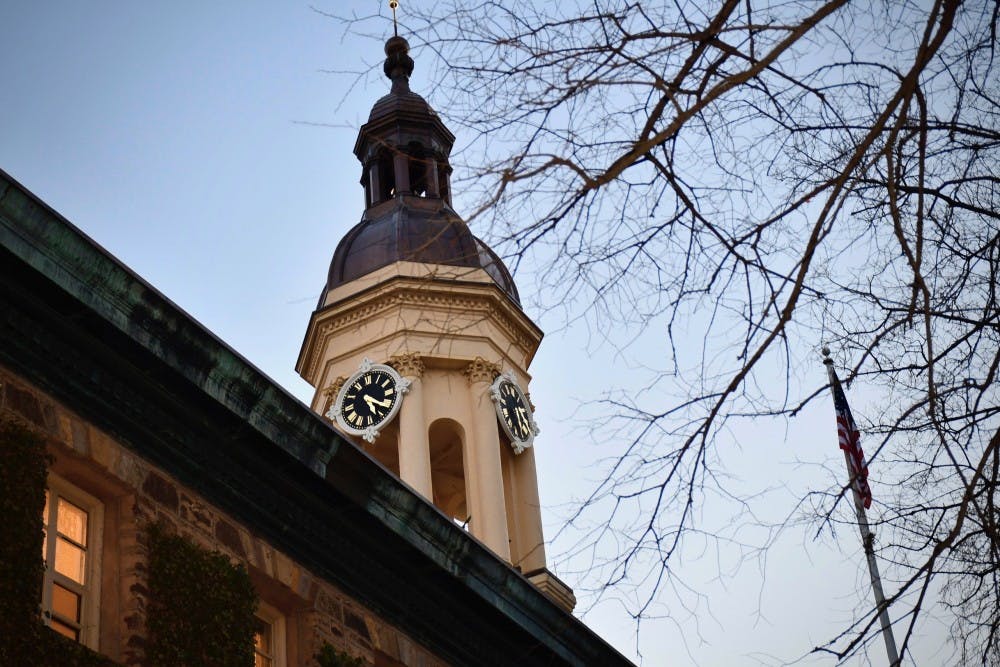Recently, The Daily Princetonian reported that over two dozen members of the class of 2020 are running for the position of Young Alumni Trustee (YAT). Yet, it doesn’t seem that many other people are paying this process much mind.
Perhaps this is for the best, since so little is commonly known about how the University works and what the concrete implications are of electing someone to a Board of Trustees, however well-meaning and qualified the candidate. It is, however, worth considering why we know so little about the operations of an institution that determines not only our education, but in many respects, other facets of our lives.
First, it is worth considering the constituencies to which the University is ostensibly responsible. One would think, for instance, that its day-to-day operations could be managed by campus workers, faculty members, and ourselves, the students whose education the institution is sworn above all other matters to facilitate. Campus workers allow the campus to function in innumerable ways; the role of faculty, moreover, is self-evident.
All three of these constituencies are most crucial in making the University what it is, and in turn, these constituencies rely most directly on the good will and constructive objectives of the University. Our very livelihoods, currently and in the future, are predicated on the resources and reputation of the institution. Lastly, the University is responsible to an entire society from which it cannot be disentangled.
Unfortunately, the University’s treatment of these core constituencies does not match what we deserve. One need only recall the recent closing off of Council of the Princeton University Community (CPUC) meetings to unapproved questions in order to understand this point.
How is it, one may wonder, that a University, which less than two years ago played host (somewhat begrudgingly, I must presume) to a town hall at which its workers protested their systematic abuse, could possibly have the gall to engage in such evasion of discourse? And this, from a President who recently assigned a book for summer reading entitled Speak Freely!
Indeed, we may speak freely in the classroom, so long as that doesn’t inspire us to ask uncomfortable questions about the harrowing details of the stories told by the people who make the campus run, in all the ways that are the most vital and the least recognized. True to technocratic form, the concerns of students and the predicament of the workers can be dismissed with just one policy. Two birds, one stone.
Of course, the plight of campus workers has not been the only concern of an increasingly restless student body. What of the criminal history checkbox that remains a blot on the undergraduate application? In spite of vigorous opposition to it, the University responded not with compromise, but rather by digging in its heels; now, the box has been added to the graduate school application as well!
When enrolling in a supposedly world-class space of higher learning, we were promised the best. But along with the very peak of intellectual production, the administration could not help but to add a complimentary middle finger, all the while mouthing the self-serving words of civic engagement and while thwarting the efforts of its most dedicated practitioners.
Such instances of academic mendacity can be multiplied, more or less infinitely, and this is not just a manifestation of a few incidents of poor judgement. Instead, it speaks to an impenetrable organizational structure that drowns out our voices and obscures its functions from our view. The names on our buildings are frequently those of plunderers and slaveholders, and our geographic expansion is a displacing imposition on the surrounding town.
When considering if this is done on our collective behalf, ponder what say you had in it, how aware you are of the mechanisms at play, and ultimately, how implicated we could possibly be in how the University treats others, given how unresponsive it is when engaged directly by us. The inevitable question then, when all is said and done, is the following: if not ours, whose interests does the University serve?
The YAT election might not answer this question, but it should inspire us to ask.

Braden Flax is a junior from Merrick, N.Y. He can be reached at bflax@princeton.edu.








